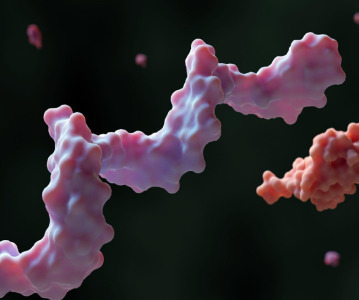Regen BioPharma sees success in Its pre-clinical small molecule optimization program for NR2F6

The company's small molecule drug program is aimed at treating cancer and autoimmune diseases .
Regen BioPharma has completed the first phase of its small molecule optimization program, which involved synthesizing more than 40 analogues of its initial lead compounds (RG-NA01, RG-NA02, RG-NI01 and RG-NI02). The compounds synthesized consist of activators (RG-NA01 and RG-NA02) and inhibitors (RG-NI01 and RG-NI02) of NR2F6 and were identified using Regen's patented screening methodology and unique chemical libraries.
With the crucial first phase completed the company, along with ChemDiv, can move forward with the optimization process, which involves introducing the synthesized compound analogues to cells specifically designed to respond to NR2F6 agonists and learning more about their potency.
The NR2F6 nuclear receptor has been identified as a potentially very important immune cell inhibitor (an immune checkpoint) and cancer stem cell differentiator. The NR2F6 program at Regen aims to identify antagonists of NR2F6 in an effort to unleash the cancer-killing potential of a patient's own immune system, as well as identifying agonists which should suppress the immune system in diseases where the immune system is over-activated, such as autoimmunity (e.g.: arthritis).
"The ChemDiv team has synthesized more than 40 analogues of our initial small molecules and has begun screening them for activity. We are excited that several of these compounds have dose-dependent activity in our cellular assay," says Harry Lander, President and Chief Scientific Officer of Regen. "We are currently evaluating the relationship between the structure of the compounds and their activity. By performing careful and thoughtful medicinal chemistry, we expect to be in a strong position in a few months, in terms of having a well-understood optimized activator and inhibitor of NR2F6."
David Koos, Regen BioPharma's Chairman & CEO noted: "We have identified compounds that will likely cause the body's own immune system to fight cancer and autoimmune diseases, such as arthritis, by manipulating the immune checkpoint NR2F6. A key differentiator for Regen is being able to deliver these therapies through small molecule treatments (e.g.; pill form), which should produce an easier and more comfortable approach for patients, leading to fewer and less severe side effects than currently used therapies."
Related News
-
News Google-backed start-up raises US$600 million to support AI drug discovery and design
London-based Isomorphic Labs, an AI-driven drug design and development start-up backed by Google’s AI research lab DeepMind, has raised US$600 million in its first external funding round by Thrive Capital. The funding will provide further power t... -
News AstraZeneca to invest US$2.5 billion in Beijing R&D centre
Amid investigations of former AstraZeneca China head Leon Wang in 2024, AstraZeneca have outlined plans to establish its sixth global strategic R&D centre in China. Their aim is to further advance life sciences in China with major research and manufact... -
News Experimental drug for managing aortic valve stenosis shows promise
The new small molecule drug ataciguat is garnering attention for its potential to manage aortic valve stenosis, which may prevent the need for surgery and significantly improve patient experience. -
News How GLP-1 agonists are reshaping drug delivery innovations
GLP-1 agonist drug products like Ozempic, Wegovy, and Mounjaro have taken the healthcare industry by storm in recent years. Originally conceived as treatment for Type 2 diabetes, the weight-loss effects of these products have taken on unprecedented int... -
News A Day in the Life of a Start-Up Founder and CEO
At CPHI we work to support Start-Up companies in the pharmaceutical industry and recognise the expertise and innovative angles they bring to the field. Through our Start-Up Programme we have gotten to know some of these leaders, and in this Day in the ... -
News Biopharmaceutical manufacturing boost part of new UK government budget
In their national budget announced by the UK Labour Party, biopharmaceutical production and manufacturing are set to receive a significant boost in capital grants through the Life Sciences Innovative Manufacturing Fund (LSIMF). -
News CPHI Podcast Series: The power of proteins in antibody drug development
In the latest episode of the CPHI Podcast Series, Lucy Chard is joined by Thomas Cornell from Abzena to discuss protein engineering for drug design and development. -
News Amgen sues Samsung biologics unit over biosimilar for bone disease
Samsung Bioepis, the biologics unit of Samsung, has been issued a lawsuit brought forth by Amgen over proposed biosimilars of Amgen’s bone drugs Prolia and Xgeva.
Recently Visited
Position your company at the heart of the global Pharma industry with a CPHI Online membership
-
Your products and solutions visible to thousands of visitors within the largest Pharma marketplace
-
Generate high-quality, engaged leads for your business, all year round
-
Promote your business as the industry’s thought-leader by hosting your reports, brochures and videos within your profile
-
Your company’s profile boosted at all participating CPHI events
-
An easy-to-use platform with a detailed dashboard showing your leads and performance







.png)